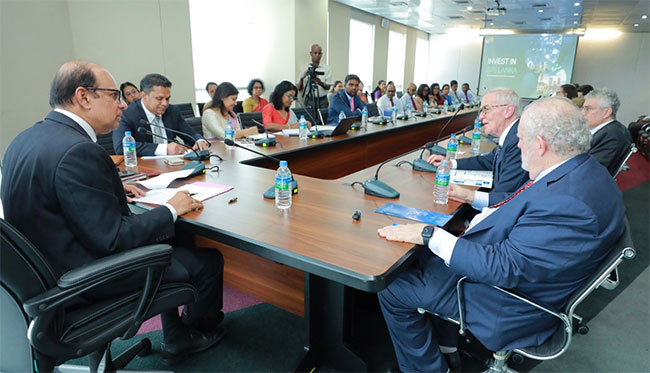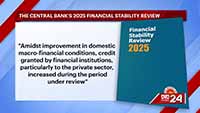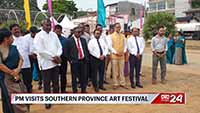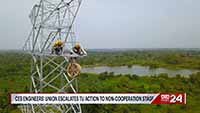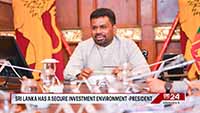Sri Lanka highlights investment potential during visit by US Business Think Tank delegation
October 12, 2025 10:06 am
A 23-member U.S. delegation comprising senior representatives from leading American think tanks and private sector enterprises paid a courtesy call on the Chairman of the Board of Investment (BOI) of Sri Lanka, Arjuna Herath.
The delegation included prominent members from the Hudson Institute, the American Enterprise Institute, and executives representing technology and human capital development sectors, according to the statement from BOI.
The high-level meeting, presided over by BOI Chairman Herath, brought together senior Sri Lankan government officials and the distinguished U.S. delegation led by Professor Walter Russell Mead of the Hudson Institute. Discussions centered on strengthening economic ties, expanding investment opportunities, and Sri Lanka’s strategic role in a rapidly evolving geopolitical landscape.
Professor Mead explained that his delegation comprised business leaders, investors, content developers, and policy experts from the United States who are keen to understand Sri Lanka’s economic transformation, regional positioning, and development priorities. Delegation members engaged in a dynamic discussion on a wide range of topics including the investment climate, technology adoption, and real estate development.
Addressing these points, BOI Chairman Arjuna Herath underscored Sri Lanka’s commitment to political stability, transparency, and economic reform. “We are determined to maintain macroeconomic stability while fostering growth,” Chairman Herath stated. “Our government is firmly market-oriented, working closely with the IMF to ensure fiscal discipline, eliminate corruption, and promote good governance. Sri Lanka’s economic trajectory is strong, forward-looking, and open for business.”‘
On geopolitical matters, Sri Lankan officials reaffirmed the country’s long-standing non-aligned foreign policy, maintaining constructive relations with all major powers while safeguarding national interests. “We remain neutral and independent in our external relations,” officials noted. “Our ties with the U.S. are historic and enduring — rooted in shared democratic values and people-to-people connections.”
The BOI emphasized Sri Lanka’s strategic advantages for investors: a highly educated and trainable, English-speaking workforce; a strategic location along major East–West shipping routes; and competitive opportunities in high-growth sectors such as logistics, renewable energy, technology, pharmaceuticals, minerals, apparel, tourism, and real estate development. Officials also outlined several upcoming initiatives, including specialized economic zones for technology, textiles and pharmaceuticals, new digital economy initiatives, and expanded opportunities in port logistics and industrial infrastructure, supported by upcoming regulatory reforms to further foster strategic investments.
When asked about Sri Lanka’s message to U.S. investors, the BOI delivered a clear signal: “We remain open, transparent, and eager to work with U.S. partners. Our focus is on fostering a positive narrative that reflects Sri Lanka’s recovery, resilience, and readiness to welcome investment.”
The U.S. delegation emphasized that these discussions are pivotal in shaping the future landscape of various industries and aligning resources and expertise for mutual growth. By leveraging emerging technologies and global best practices, both sides aim to cultivate a thriving environment for sustainable development and enhance competitiveness in international markets, it said.
In closing, Sri Lankan representatives extended their gratitude to the U.S. delegation: “We extend our deepest thanks to Professor Mead and the entire delegation for your visit and friendship. Our doors are always open to you. Together, we can build a stronger partnership that supports prosperity for both our nations.”
This visit underscores growing international interest in the country’s economic resurgence. It also reflects investor recognition of the visible progress being achieved in stabilizing and reforming the economy, which has been commended by the IMF, World Bank, and development partners.



